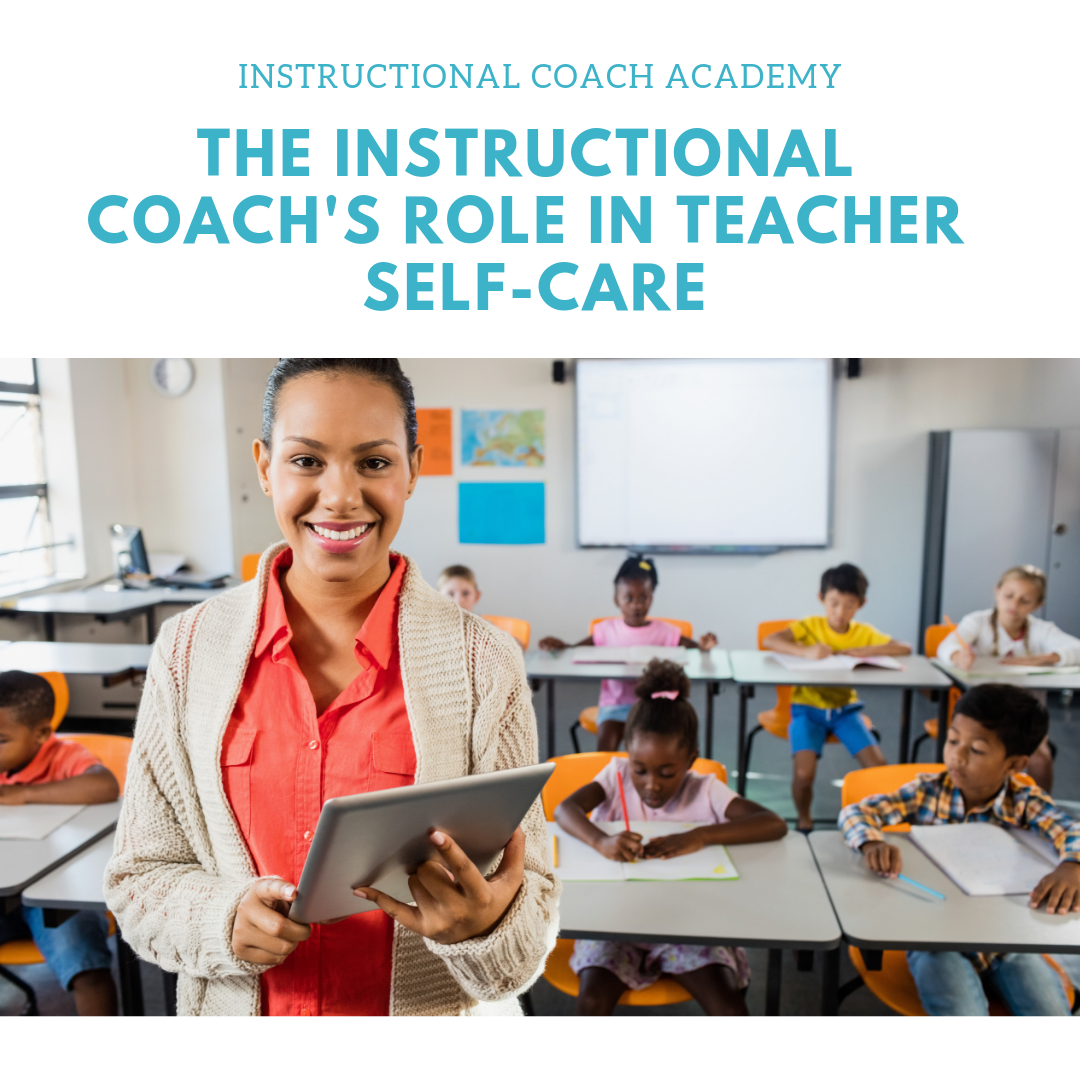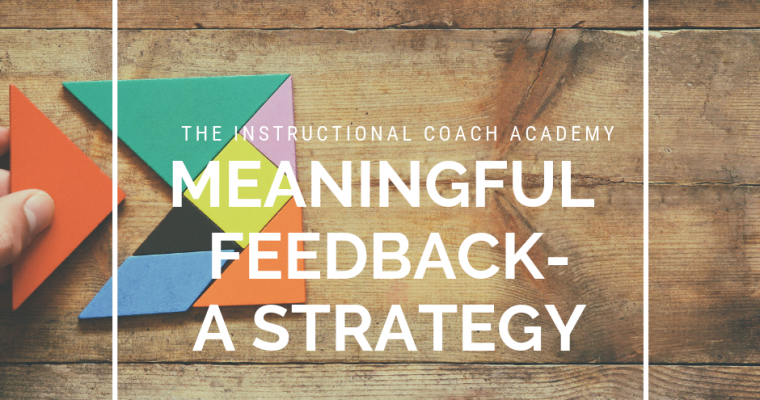Coaches have a vital role to play in teacher self-care. That statement almost sounds counter-intuitive. Honestly, I kind of hate the term ‘teacher self-care.’ I worry it puts the onus of caring for teachers only in their own hands. As coaches, as schools, as districts, I believe we should share responsibility for the care of teachers.
Perhaps, instead of encouraging teachers to learn to say no, we ought to focus on not asking too much of them. As coaches, we have an opportunity and a responsibility to take an active role in caring for teachers. There is always too much to do in schools; however, there are steps we can take to support teacher self-care.
Coaches can establish a culture of shared accountability. We can learn our teachers strengths, weaknesses, and boundaries. Instruction improves when we can help teachers divorce responsibility from blame to focus on student growth. We can clearly establish our own boundaries and stand firm in support of reasonable expectations. Mostly, we can avoid some common pitfalls.
We are, or at least I am, often guilty of asking those we know will say yes. In a pinch, when I need help, I ask teachers who are willing. The unfortunate side effect is that we unintentionally contribute to the overburdening of certain teachers. Partly, we do this out of desperation. Partly, we do this because it is easier. And partly, I think, we do this out of fear.
Not unlike our teachers, we as Instructional Coaches are frequently overworked and overwhelmed. When last-minute tasks with impossible deadlines loom, we are often desperate for help. We reach out to those we trust. We depend on those whose abilities we trust. It feels impossible not to depend heavily on the dependable.
In addition to desperation, asking those likely to say yes is So. Much. Easier. It is difficult to confront the insecurity of asking someone for help when we are unsure of the answer. It is hard enough to ask for help. Pressure makes it infinitely harder. Formulating a plan for approaching those who are less apt to pitch
Asking for help is also terrifying. It makes us vulnerable. How can we balance being an instructional authority with needing to ask for support? We fear the potential loss of respect or authority or validity. It can feel like we are sacrificing our standing instead of standing on our own. We are worried about appearing weak at nervous about failure. Compounding those issues is the fear that the help we seek may be inadequate.
Despite all those issues, we can care for our teachers and ourselves by creating a culture of shared responsibility. A culture of collaboration as a positive choice that leads to success rather than a mandate. Taking the time and effort to invite every teacher to participate in shared tasks builds confidence, respect, and success. It can lead to the sharing of ideas.
Of course, teachers have different skill sets and levels of contribution. Knowing and respecting those strengths and limitations is part of the job. Accepting each other, even as we push each other to improve, is a vital part of a healthy school culture.
Teachers who fail to care for themselves eventually fail to care for others effectively. Coaches have a role in ensuring teachers take care of themselves and each other. Just as we encourage students to develop shared accountability and mutual respect, we need to encourage teachers to do the same. Maybe it would be fair to say that the coach’s role in teacher self-care is coach self-awareness and coach self-care.


![[September] Teacher Self-Care Calendar For Teachers](https://theinstructionalcoachacademy.com/wp-content/uploads/2018/09/September-Self-Care-Calendar.001-760x400.jpeg)